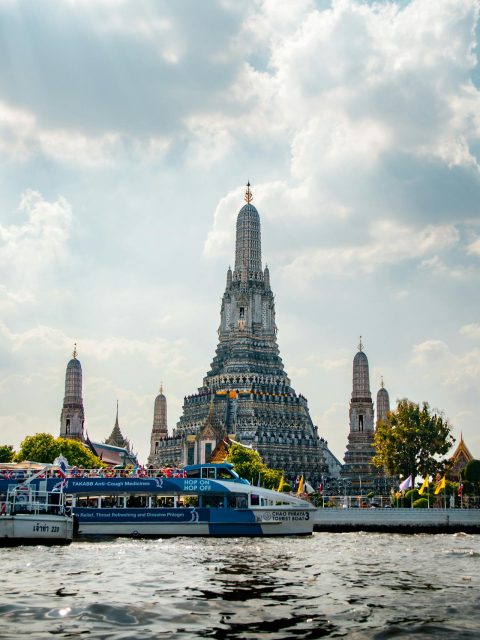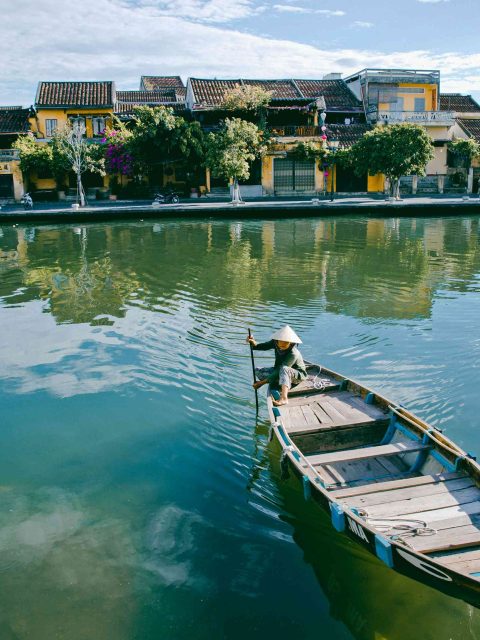15 Canada Travel Essentials to Know Before Your Trip
Planning a Visit to Canada? Are you considering a trip to Canada soon? This country is a treasure trove of bustling cities and magnificent national parks, offering an array of experiences distinct from its neighbor, the USA. Although Canada shares a border with the United States, the two are uniquely different in many aspects.
Before you embark on your journey, there are some Canada travel essentials you need to know to make the most of your visit.
Chapters
- 15 Canada Travel Essentials to Know Before Your Trip
- 1. Embracing Canada’s Vastness
- 2. Be Ready for Canada’s Ever-Changing Weather
- 3. Canada Has Two Official Languages
- 4. Tipping in Canada
- 5. Be Prepared for Sales Tax on Your Bills
- 6. Canadians are Known for Their Politeness
- 7. You Can Expect Good Customer Service in Canada
- 8. Driving in Canada
- 9. You Will Need Health Insurance
- 10. The Legal Drinking Age in Canada is 18 or 19
- 11. Make Sure You Have the Right Travel Documents
- 12. Emergency Information
- 13. Kilometers, Celsius, and Liters
- 14. Tim Hortons Is a Must-Visit
- 15. Explore Canada’s Natural Wonders!
15 Canada Travel Essentials to Know Before Your Trip
Preparing for a trip to Canada is exciting, and knowing a few essentials can help ensure a smooth experience. This guide will provide you with all the necessary information on the diverse climate, local customs, and travel tips
1. Embracing Canada’s Vastness
Canada is enormous, ranking as the second largest country in the world, only behind Russia. Planning to explore Canada thoroughly in just a few weeks is impractical due to its vast size. Instead, if your time is limited, consider focusing on one or two provinces to truly appreciate the depth of experiences they offer.
Remember, Canadian cities and attractions are widely dispersed. When booking accommodations, it’s wise to verify the distances, even if a hotel appears to be conveniently located near major sights or transportation hubs. Opting for a suburban hotel might save you money, but be prepared for a significant commute. Unlike many European cities, where you can conveniently explore on foot, Canada’s expansive layout often requires a car for efficient travel.
Given that Canada spans six time zones and consists of 10 provinces and three territories, renting a car is advisable if you wish to cover more ground. While there are scenic train routes and organized tours available, having a car offers the most flexibility and reach.
2. Be Ready for Canada’s Ever-Changing Weather
One key packing tip for traveling to Canada is to always bring layers! Even if you’re visiting in the summer, the temperatures can drop significantly at night, especially in mountainous areas. The weather can vary greatly depending on where you are in the country.
For instance, while the coast of British Columbia enjoys milder winters, the rest of Canada can experience freezing temperatures. If you’re traveling during the winter, expect it to get extremely cold. Be sure to pack essentials like a warm wool hat (known as a “toque” in Canada), thick gloves, and a scarf to protect your face.
Fun fact: Canada once recorded a temperature of -81.4 degrees Fahrenheit (-63°C) in 1947! And in Newfoundland, the Atlantic Ocean occasionally freezes over, allowing locals to play hockey on the ice!
3. Canada Has Two Official Languages
While English is the primary language for the majority of Canadians, French is the second official language and is spoken by around 20% of the population. Canada’s diverse and multicultural society also means you’ll encounter various accents, levels of language proficiency, and numerous other languages spoken across the country.
French is predominantly spoken in the province of Quebec. However, the Quebecois version of French, with its unique accent and slang, can feel quite different from the Parisian French you might have learned in school.
4. Tipping in Canada
Tipping in Canada is quite similar to the practice in the USA. When you receive services from waitstaff, hairdressers, taxi drivers, hotel staff, or others in the service industry, it’s customary to leave a tip.
While tipping isn’t mandatory, it is generally expected in most situations. A tip of 15% to 20% is considered standard for good service across the country.
5. Be Prepared for Sales Tax on Your Bills
In Canada, a federal sales tax is applied to most goods and services, and many provinces add their own taxes on top of that. Depending on where you are, the combined tax on your purchases could reach up to 15%.
This means that the price you see on a product label isn’t the final price, as taxes will be added at checkout. You can also expect these taxes on restaurant bills, hotel stays, and other services.
Like in the USA, Canadians love promotions, sales, and special offers, so it’s a good idea to compare prices before making purchases. For example, gas prices can vary significantly from station to station and even change daily.
Note: Canada used to offer a tax refund program for visitors, but this was discontinued in 2007. So, any taxes you pay while visiting Canada will remain in Canada.
6. Canadians are Known for Their Politeness
Canadians are well-known for their polite and respectful behavior. In public, they generally avoid any actions that might be seen as disruptive or offensive. Whether it’s cutting in line, causing a scene, catcalling, loitering, littering, or being visibly drunk in public, these behaviors are highly discouraged, especially in Canada.
Canadians are famous for their tolerance and tend to avoid confrontation. To some, they may seem reserved, and it’s common for them to say “sorry” even when there’s no real reason to apologize.
7. You Can Expect Good Customer Service in Canada
Much like in the USA, Canada is a consumer-oriented society, where the customer is often considered a top priority. Most stores are open seven days a week and stay open until late in the evening. Restaurants accommodate a wide variety of dietary preferences, and waitstaff are generally friendly and attentive.
If you need assistance, many companies provide toll-free numbers to connect you with customer service representatives. In general, you can expect the service you need to work smoothly and efficiently.
8. Driving in Canada
If you’re driving to Canada from the USA, it’s important to note that speed limits are different. Make sure to check the local speed limits before you start your journey.
Like in most countries, using mobile phones while driving must be hands-free. In Canada, it’s also illegal to smoke in a vehicle if you’re traveling with a minor. Driving conditions during winter can be extremely hazardous, so it’s essential to carry a fully charged mobile phone and an emergency kit when heading out in snowy weather.
If your car isn’t well-prepared for winter conditions, consider renting a vehicle that is better equipped for the season.
Fun fact: Canada’s population is smaller than that of Tokyo’s metropolitan area!
9. You Will Need Health Insurance
While Canada is renowned for its excellent healthcare system, it is only accessible to Canadian residents. If you get injured or fall ill during your visit to Canada and don’t have adequate health insurance, you could face significant medical expenses.
Before traveling to Canada, make sure to purchase travel insurance that covers medical costs during your stay. This will protect you from unexpected medical bills and ensure that you receive the care you need in case of an emergency.
10. The Legal Drinking Age in Canada is 18 or 19
In Canada, the legal drinking age varies depending on the province, either 18 or 19. This age limit also applies to purchasing liquor and beer, which are usually sold in specially designated liquor and beer stores, not in grocery or convenience stores as in some other countries.
Because the drinking age in Canada is lower than in the USA, you may find many young Americans crossing the border for a night out and to experience the party scene.
11. Make Sure You Have the Right Travel Documents
Unless you are a U.S. citizen, you will typically need either a visa or an Electronic Travel Authorization (ETA) to enter Canada. The specific requirement depends on your nationality, so it’s important to check well before your travel date.
The ETA is required for all visa-exempt travelers, except Americans, and you must obtain it before boarding your flight to Canada. Fortunately, the process to get an ETA is simple and can be completed online in just a few minutes.
If you’re traveling to Canada by land from the U.S., make sure to review the specific requirements for crossing the Canada-U.S. border.
12. Emergency Information
Hopefully, you won’t need it, but it’s important to be aware of the emergency number in Canada. If you need to contact emergency services, including police, medical services, or firefighters, the number to dial is 911.
13. Kilometers, Celsius, and Liters
Unlike the USA, Canada officially uses the metric system. However, in daily life, you’ll encounter a mix of units. Distances and speed limits are measured in kilometers, but if you ask a Canadian their height, they’ll likely tell you in feet and inches. For weight, many still use pounds.
When it comes to weather, Canadians use Celsius, but for baking, they might switch to Fahrenheit. If you’re driving and need to stop for gas, remember that fuel prices are listed per liter, not per gallon.
14. Tim Hortons Is a Must-Visit
Tim Hortons is a Canadian icon, and you’ll see it everywhere you go. No matter how small the town, there’s likely a Tim Hortons nearby. The chain, named after a hockey player, offers coffee, sandwiches, and donuts.
If you’re looking for an affordable coffee or a quick snack, head to the nearest “Timmies” instead of Starbucks. Canadians have mixed feelings about Tim Hortons, but as a traveler, you should visit at least once to form your own opinion.
15. Explore Canada’s Natural Wonders!
Canada boasts modern and vibrant cities like Toronto, Vancouver, and Montreal, filled with culture, delicious food, and plenty of things to do. While these cities are fantastic destinations, the true beauty of Canada lies outside its urban areas.
With its vast size and relatively small population, much of Canada remains wild and untouched. In fact, Canada has more lakes than all other countries combined, making it a haven for nature lovers.
Whether it’s trekking across glaciers in the Rocky Mountains, hiking through coastal rainforests on Vancouver Island, or canoeing through Ontario’s pristine lakes, Canada’s great outdoors is an experience not to be missed. If you enjoy outdoor activities like hiking, camping, canoeing, skiing, fishing, or bird watching, Canada is the perfect destination for you.
Canada’s national parks offer spectacular landscapes and a wide variety of activities. Be sure to include at least one or two in your itinerary when visiting Canada.














